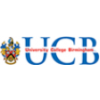Snabbfakta
-
- London
Ansök senast: 2025-03-10
Postdoctoral Research Associate in Gene Therapy and Regenerative Medicine
About us
KCL Centre for Gene Therapy & Regenerative Medicine (CGTRM) is a premier research institution for the study of tissue regeneration with next-generation cellular and genetic therapeutics. Within the Centre, the Lieberam group investigates nerve muscle connectivity and disease that affect neuromuscular circuits, using human iPSC-based tissue culture models as their primary experimental system.
Together with the groups of Prof Wenhui Song (UCL) and Dr Daniel Fazakerley (University of Cambridge), we are developing a human iPSC-based model of skeletal muscle myofibers and innervating neurons. Our aim is to uncover the disease mechanisms underlying the loss of insulin sensitivity and glucose uptake by muscle, a key cause of type 2 diabetes in humans.
About the role
This role is for a qualified and experienced scientist who has been working in an academic or commercial research laboratory/company related to the differentiation of human iPSC into different cell lineages, and the assembly of complex tissue culture models from these cellular elements. The cells used in this experimental system will be genetically modified such that cellular functions like glucose transporter trafficking can be visualized. We will study these circuits by immunocytochemistry and live cell imaging, in close collaboration with members of the partner groups at UCL and University of Cambridge. The aim of the project is to establish a co-culture system that can be used to evaluate the impact of environmental and genetic factors on metabolic abnormalities that cause type 2 diabetes in humans, and to test potential therapeutics that stop or reverse the disease process.
The purpose of the role is to provide subject-specific research expertise to, and undertake specific research work for the Principal Investigator (PI) and their research team for the project aimed at modelling glucose uptake by skeletal muscle with human iPSC-derived neuromuscular circuits.
The post holder will contribute to the plan to deliver technical innovation and lead specified work packages developing the experimental plan with Dr Lieberam and other members of the team, and allocating resources to the tasks within the plan. To ensure successful development of the cellular model and progress towards understanding insulin resistance, the candidate requires a strong background/knowledge of human iPSC culture, in vitro differentiation, and imaging technology, such as confocal microscopy. In addition, they also require excellent interpersonal skills to work within and across a diverse and interdisciplinary team.
This post will be offered on a fixed-term contract until 31st Jan 2027 in the first instance. This position is a full-time role (100% FTE) and requires full-time on-site work.
About you
To be successful in this role, we are looking for candidates to have the following skills and experience:
Essential criteria
Qualifications and Training
1. PhD in stem cell biology, neuroscience, muscle biology or a related field.
2. Proficiency in human iPSC culture and differentiation as well as molecular biology and genetic modification of human iPSCs, such as Crispr-mediated homologous recombination and transposition.
3. Competency in imaging technology, such as confocal microscopy and fluorescent live cell imaging, in particular calcium imaging and imaging of intracellular transport.
Skills / Experience
4. Comprehensive theoretical knowledge of nerve-muscle connectivity, skeletal muscle function, and glucose metabolism.
5. Comprehensive theoretical knowledge of neuromuscular circuit modelling with human iPSCs.
Knowledge and Competencies
6. Able and willing to provide support beyond core hours, as required. This applies in particular to the maintenance of human iPSC cultures.
7. Experience with the quantification of imaging data and statistical methods required for this type of analysis.
8. Excellent spoken & written communication skills and influencing/behaviour skills to build strong networks with internal and external stakeholders, record keeping and attention to detail, ability to contribute to the team's success such as training and professional development of colleagues, providing scientific input during meetings, keeping a healthy working atmosphere in the lab.
Desirable criteria
1. Experience in cell analysis/sorting with flow cytometry.
2. Good scientific writing skills.
3. Experience in supervising/advising junior team members and working within an interdisciplinary research team.
Further information
We pride ourselves on being inclusive and welcoming. We embrace diversity and want everyone to feel that they belong and are connected to others in our community.
We are committed to working with our staff and unions on these and other issues, to continue to support our people and to develop a diverse and inclusive culture at King's.
We ask all candidates to submit a copy of their CV, and a supporting statement, detailing how they meet the essential criteria listed in the advert. If we receive a strong field of candidates, we may use the desirable criteria to choose our final shortlist, so please include your evidence against these where possible.
To find out how our managers will review your application, please take a look at our 'How we Recruit' pages.
We are able to offer sponsorship for candidates who do not currently possess the right to work in the UK.#J-18808-Ljbffr













